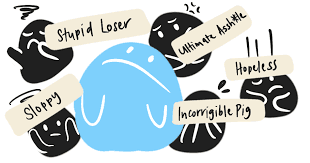Labeling and mislabeling
Those who label or mislabel will habitually place labels that are often inaccurate or negative on themselves and others.
“He’s a whiner.” “She’s a phony.” “I’m just a useless worrier.”
These labels tend to define people and contribute to a one-dimensional view of them, paving the way for overgeneralizations to move in.
Labeling cages people into roles that don’t always apply and prevents us from seeing people (ourselves included) as we really are.
It’s also a big no-no in relationship conflicts.
130
186 reads
CURATED FROM
IDEAS CURATED BY
I'm passionate about helping people live their best lives. I'm a lifestyle coach & burnout coach.
The idea is part of this collection:
Learn more about personaldevelopment with this collection
How to find inspiration in everyday life
How to stay motivated
How to cultivate a positive mindset
Related collections
Read & Learn
20x Faster
without
deepstash
with
deepstash
with
deepstash
Personalized microlearning
—
100+ Learning Journeys
—
Access to 200,000+ ideas
—
Access to the mobile app
—
Unlimited idea saving
—
—
Unlimited history
—
—
Unlimited listening to ideas
—
—
Downloading & offline access
—
—
Supercharge your mind with one idea per day
Enter your email and spend 1 minute every day to learn something new.
I agree to receive email updates
